how do artists figure out what to make
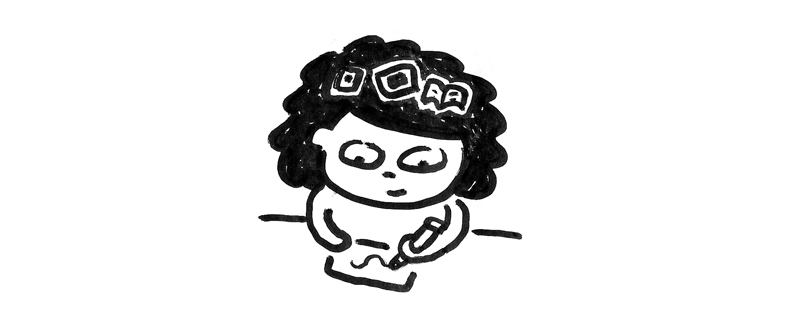
Given the fourth dimension and resources, I believe anyone tin learn to draw, pigment, or write. Just making art is more than merely studying anatomy, learning to mix pigment, and mastering grammar.There's an important mental side to making fine art that deals with vocalization, style, originality, and actuality. Simply the skilful news is that, in my opinion, you tin acquire how to chief all those things too.

What is an Artistic Style?
Your artistic style is what makes your work feel similar y'all.Information technology'south what makes a Picasso experience like a Picasso, and a Hitchcock experience like a Hitchcock.
In that location are enough of tutorials online and in books describing step by stride how to draw the human trunk or pigment a sunset of moving-picture show a fight scene. But there'southward no tutorial on finding your vocalization as an artist.
The reason is that no i actually knows the exact steps they took to hone their fashion, and even if they did, information technology wouldn't be much assistance to anyone but themselves, becauseyour creative style is totally specific to you lot.
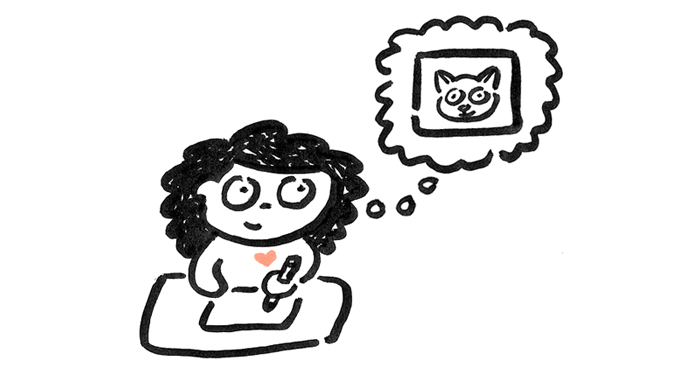
In Fact, Your Fashion Is You
Only equally you develop your Self and go more similar "you lot" equally you grow up, your artistic voice is doing the same matter. With every experience y'all have, your Self changes and grows, andwith every slice of fine art you make, your style changes and grows.
So, although I can't lay out a step by stride guide for you lot to find your creative manner, I believe there'southward a general progression through an artist'due south life, including my own, and I'm going to lay out that progression here.
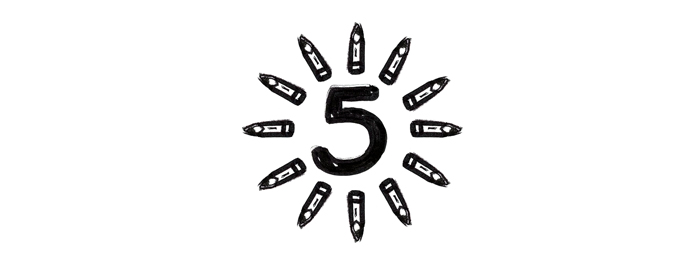
An Artist'southward Style Progression
A quick note here: I'yard going to go through the general progression of artistic developments through my life, justthis by no means the only or best way to go about information technology. If you haven't or aren't post-obit this path, that's fine! This is merely how I've gone nigh my path. Experience gratuitous to forge your own.

one. Exploring Your Tools
Y'all draw, paint, write, and make a lot of stuff as a child. Eventually youobserve the bones art forms yous enjoy making most.
For me, this ended up being drawing.
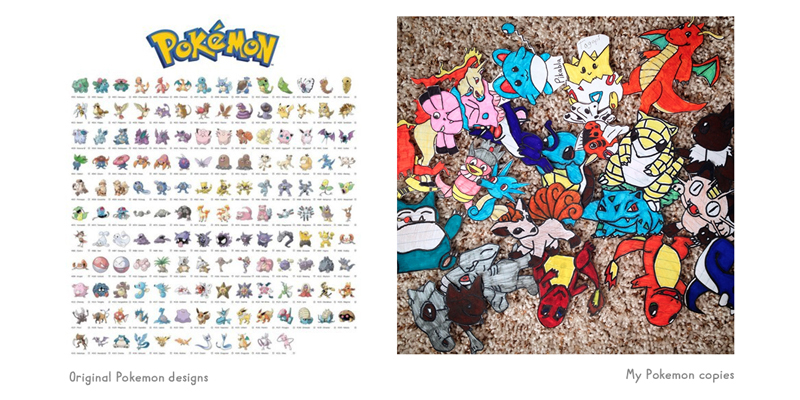
2. Improving Your Craft
Once the interest is planted, you dive in, aiming toamend your arts and crafts. You lot re-create other artists, trying to learn how the artwork is made.
For me, this involved copying and cartoon a whole lot of Sailor Moon and Pokemon when I was young.
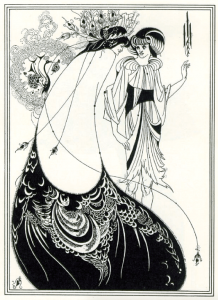
3. Refining Your Taste
You come across a piece offine art that speaks to you more deeply than anything else has earlier.
For me, this happened in higher when I commencement saw the illustrations of Aubrey Beardsley. I saw it once, in a library, and couldn't finish thinking about it for days.
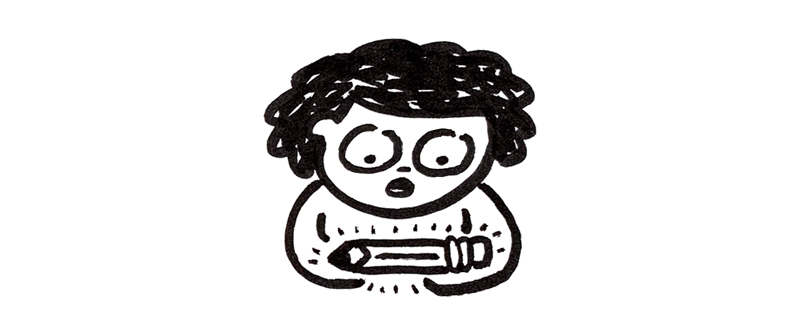
4. Finding Your Vocalism
You lotfollow your obsessions and curiosity.
For me this evolved to be mainly scientific topics.
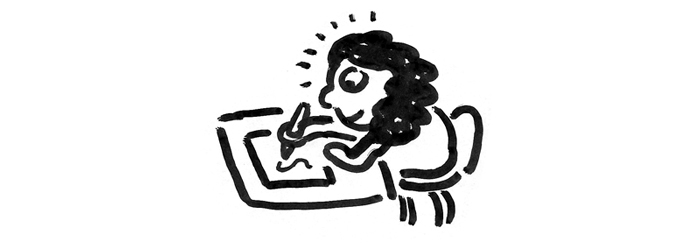
5. Discovering Your Way
You lot observe and pay attention to whichelements keep popping upwardly in your artwork. This leads y'all toobserve what makes a piece of art look like you. This includes color palettes, overall drawing mode, textures, voice/field of study, and specific techniques.
For me, something really clicked when I began making a weird chevron-ish pencil texture in my work. I began noticing it pop upward once again and again in my work, and somewhen it became a major part of my style.
An Evolution
Information technology's of import to go along in mind here, that this is a continuing development, that tin can andshould continue evolving throughout your life equally an artist. That chevron pattern has shifted and changed over the last five+ years of drawing, as I've since adult other quirks as I've inverse and my fine art has changed.Each alter volition lead y'all to the next if you follow them.Yous can still meet the shadow of my chevron patten in how I fill in areas with pen, like in the texture of hair.
So those are the basic developments, simplyhow do we motion through that progression, pushing through each development to the next?

The Step that Makes it All Happen
There'southward one crucial footstep that happens throughout this progression, and without it, your way will never exist found. So what is this secret step to find your artistic style?
Information technology's making art.
Each development is pushed to the next past making more and more fine art and noticing the artistic habits you brainstorm to develop. These habits are the things that just begin happening in your artwork almost in anautomatic, subconscious way. The topics that continue popping upwardly, the pencil texture y'all keep automatically cartoon. THOSE are the things that make up your style.
Merely you can't only choose them,you have to discover them. And you detect them by making lots and lots of art.
Your manner is the upshot of explored tools, all the things you've absorbed over your lifetime, an appreciation of the art, a refined craft, a sense of curiosity, the power to notice and follow the leads your piece of work shows yous, and finally the repetition of creating art over and over.
To do all that,just make more art.
Your Mistakes Will Guide You
All the failed pieces, all the work you lot created where yous had no thought what y'all were doing and were totally unhappy with the results — those obstacles arean essential role of the process, and are exactly what will lead you to finding your artistic vocalisation.
It's just a matter of persevering through the rough, floundering periods where you're trying to effigy out who you are and what you're all most.Just like getting through middle school and then y'all can finally be an adult.
"Go and make interesting mistakes, make amazing mistakes, brand glorious and fantastic mistakes. Break rules. Leave the globe more interesting for your being here. Make. Skilful. Art."— Author, Neil Gaiman
Thanks for reading and best of luck on your artistic journey!
Allow me know what you think by commenting below! :)
<3,
Christine
Source: https://might-could.com/essays/how-to-develop-your-unique-artistic-style/

0 Response to "how do artists figure out what to make"
Post a Comment